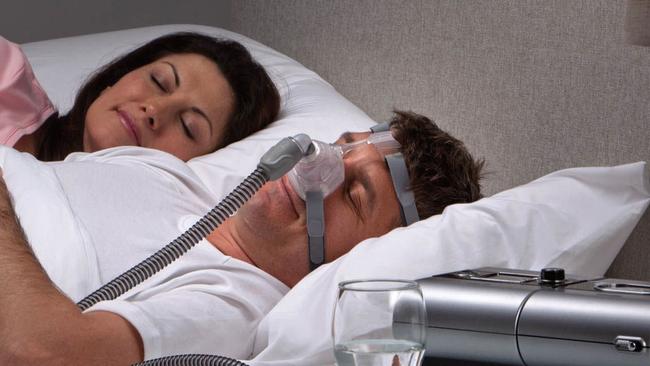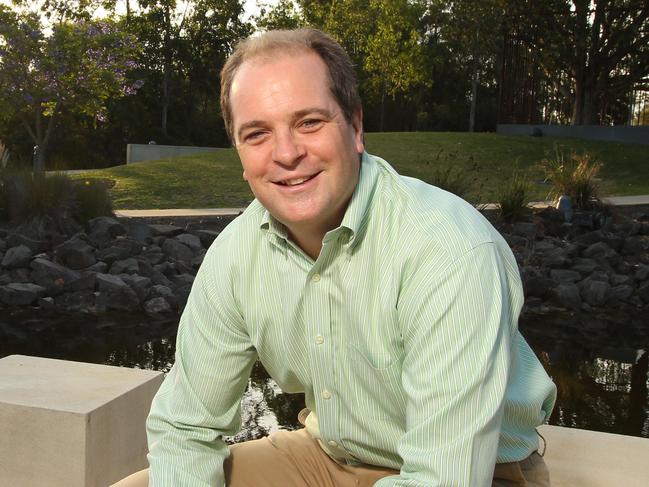More young snorers seeking help: ResMed
ResMed is no longer relying on selling its sleep apnoea masks to middle-aged men, as it posts a surge in profit and revenue.

ResMed is no longer relying on selling its sleep apnoea masks to middle-aged men, as the medical device maker posts a surge in profit and revenue.
Company chief executive Mick Farrell said more and more younger people were being diagnosed with the disease, which he prefers to call sleep suffocation.
“Apnoea is Greek for without air. So it’s suffocation. And right now there are 900 million people worldwide who are suffocating in their sleep,” Mr Farrell told The Australian.
“When I started at ResMed in the late 1990s, the stereotype we were seeing were middle-aged men who were snoring and being dragged into the sleep lab by their wives. Now the phenotype is younger, female and presenting with the less obvious symptom of snoring.”
Mr Farrell’s comments come as ResMed’s revenue surged 14 per cent to $US1.42bn ($2.12bn) for the six months ending December 31, 2019. Meanwhile, net profit rose 22 per cent to $US280.7m.
ResMed shares were trading 3.1 per cent higher at $25.07 in early trade on Friday.
The company, which is also listed on the NYSE, recorded its biggest growth in the US, Canada and Latin America, with revenue rising 14 per cent in those regions in the three months to December 31. Meanwhile, Europe, Asia and other markets grew by 8 per cent on a constant currency basis.
“We are seeing continued strong demand for our new products,” Mr Farrell said, adding that the company had launched four new face masks in the past 14 months.
The company is now selling into 140 countries and analysts are expecting ResMed to capitalise on the outbreak of the deadly coronavirus and treating subsequent respiratory conditions.
“The health care sector could experience stronger demand for their products, although EPS (earnings per share) impacts are difficult to quantify,” UBS analysts wrote in a note to investors.
“ResMed may also experience increased demand for ventilators to treat severe pneumonia cases.”

Mr Farrell said doctors were increasingly prescribing ResMed devices and technology, despite being initially sceptical of the company.
He said the company had an adherence rate of 87 per cent, compared to pharmaceutical industry averages of 50-60 per cent.
“That’s nine in 10 people (who have bought ResMed devices) who are putting plastics on their faces every night,” Mr Farrell said.
“What that means is we now have 5.5 billion nights of medical data. There is a lot of buzz around big data but we like to call it accessible information. We can turn that data into something that can change your life and that’s why doctors are liking us.
“This is a chronic disease and the earlier you catch it - ie in your 30s - you can change your life curve in terms of survival rates.”
Mr Farrell was mindful of giving detailed revenue guidance but expected demand for ResMed’s masks and accessories to continue to grow in the high-teens.
ResMed will pay a quarterly dividend of 39c a share on March 19.





To join the conversation, please log in. Don't have an account? Register
Join the conversation, you are commenting as Logout